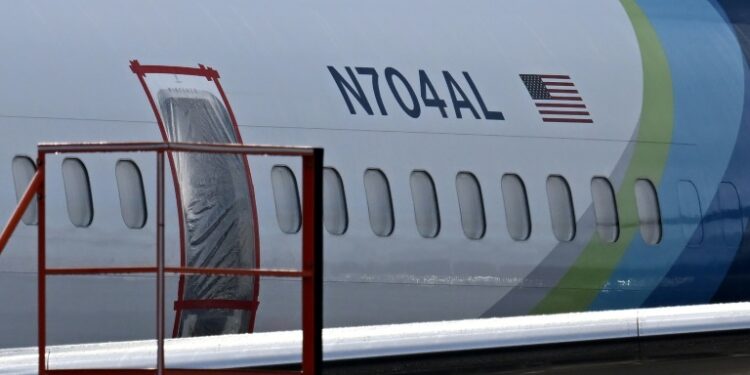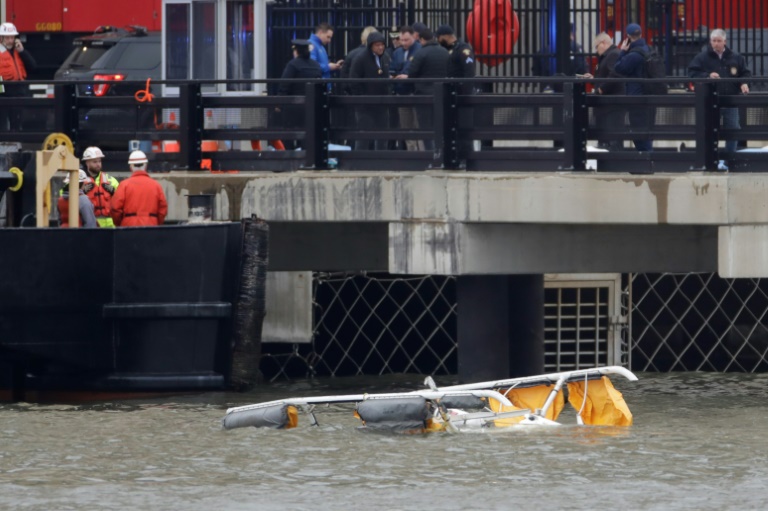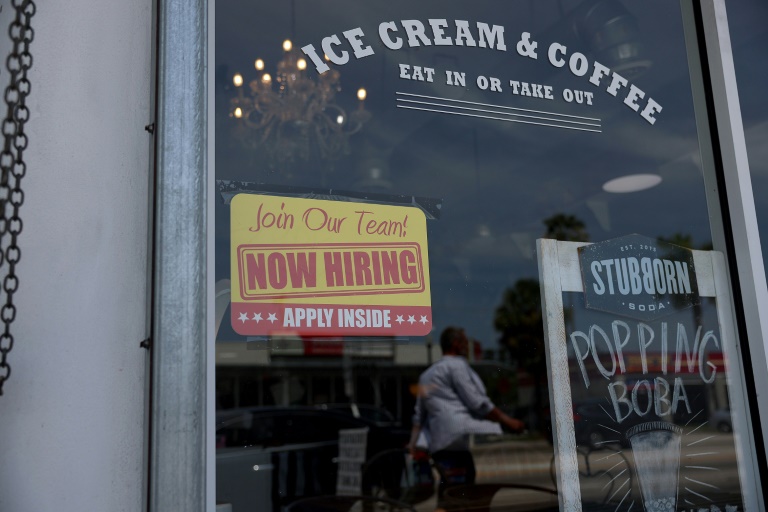New York (AFP) – Boeing reported a smaller than expected loss Wednesday, while pledging to take “comprehensive” actions to bolster quality control after a near-catastrophic 737 MAX flight earlier this month.
The aviation giant reported a $23 million loss in the fourth-quarter, which was smaller than expected.Revenues rose 10 percent to $22 billion.
The company’s earnings press release did not address medium-term financial forecasts in light of the latest crisis, which will slow plane deliveries.
The results follow a January 5 Boeing 737 MAX 9 incident on Alaska Airlines in which a panel on the fuselage blew out, necessitating an emergency landing.
US air safety regulators grounded some MAX 9 planes for three weeks before clearing a return to service following inspections.
But the Federal Aviation Administration said it would not permit Boeing to boost production on the MAX until the company improves safety and quality control.
Boeing’s MAX production reached 38 per month during the fourth quarter, up from 31 earlier in the year.
The company has planned to boost MAX production to 50 per month in 2025 or 2026, resulting in about $10 billion in annual free cash flow.
Chief Executive Dave Calhoun noted that the company typically updates financial forecasts at the start of the year, but “now is not the time for that,” he said in a letter to employees.
“We will simply focus on every next airplane while doing everything possible to support our customers, follow the lead of our regulator and ensure the highest standard of safety and quality in all that we do.”
The Alaska Airlines incident is the most serious safety episode on a Boeing commercial flight since the MAX crashes of 2018 and 2019 resulted in 346 fatalities and a lengthy grounding.
While there were no serious injuries in the latest incident, National Transportation Safety Board officials have said the episode could have been catastrophic.
A long-time Boeing board member, Calhoun was installed as CEO following the December 2019 ouster of Dennis Muilenburg, who was widely criticized for his handling of the MAX.
Calhoun has worked to restore Boeing relations with the FAA and customers, but acknowledged that the January 5 incident showed the job was not finished.
“We’ve taken significant steps over the last several years to strengthen our safety and quality processes, but this accident makes it absolutely clear that we have more work to do,” Calhoun said.
In the press release, Boeing pointed to actions taken to strengthen quality on the 737 program, including extra inspections, supporting expanded oversight from customers and pausing operations for one day to focus on quality.
On January 16, Boeing named retired Navy Admiral Kirkland Donald to oversee a review of Boeing’s quality management system.
Shares of Boeing rose 0.8 percent in pre-market trading.






















